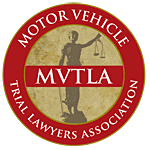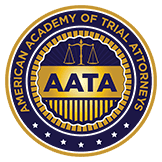In a Connecticut workers' compensation work related accident, there are workers who potentially can have their earning capacity completely destroyed causally related to their work related claim. Where an employee's capacity to earn a living in his customary occupation or any occupation which he or she could reasonably pursue is destroyed, the employee or "claimant" may have a winnable temporary total disability claim. This type of claim is frequently referred to as an Osterlund claim.
An Osterlund claim is a difficult claim to win in workers' compensation. This type of temporary total claim can be propounded when a claimant has been released by a physician for light duty work or has been rated for a permanent partial disability but still vocationally can not find suitable reasonable work in the job market.
Osterlund v State, 135 Conn. 498, 66 A.2d 363 (1949) allows a workers' compensation commissioner to award temporary total disability compensation benefits where the claimant's work related injury was a substantial factor in his lack of employability. In essence, the claimant's earning capacity must be destroyed in any occupation that he could reasonably pursue.
The factors that go into an "Osterlund" type analysis include the claimant's age, the length of time that the claimant is absent from the work force, the educational backround of the client, the client's ability to speak English, the claimant's job skills, computer skills, mental limitations, chronic pain and the claimant's physical limitations. The work related injury does not have to be the only factor that destroys a workers employability. The work related injury must, however, be a substantial factor in destroying the claimants work capacity.
Often, the Osterlund claim is propounded in the Connecticut workers' compensation forum after the claimant has been deemed eligible for Social Security disability benefits. A commissioner is not bound to follow the reasoning of a Social Security administrative law judge's opinion that an individual has no work capacity and is therefore totally unemployable.
An Osterlund workmans' compensation benefits claim will require a formal hearing or trial. It will not readily be accepted by the defense. These cases should be litigated on a selective basis as they are difficult to prove and win.
To win this type of claim, the claimant will have to show that he is making diligent work searches to no employment avail. The claimant will have to hire a vocational expert to document a lack of transferable work skills with an inability to find work. Often, a labor market analysis is performed by the vocational expert.
Generally, there is a functional capacity test ordered that delineates the claimant's ability to perform a variety of physical tasks, physical motions and the like. Often, however, a functional capacity test which helps to determine the physical limitations of a worker is not fully helpful because the testing is conducted in a non work environment. The FCT, as it is known, is not a vocational test. The reported results can be skewed by the pain management physician, occupational therapist or physical therapist adminstering the battery of tests. Often, the claimant's efforts at performing the tasks administered are called into question.
In other words, the test is done in a vacume, not the real world. Its adverse results to the claimant are often argued by the respondent and its insurance carrier. Most functional capacity tests will find that the claimant has the physical ability to perform some physical "work like" tasks whether they are light tasks or sedentary type tasks.
Winning an Osterlund claim for total disability is often the result of the testimony of a credible claimant and a strong vocational rehabilitation expert. The key, however, is evidence that the claimant is not able to perform required job tasks, duties, the physical requirements of any reasonable job on a regular and sustained basis. The claimant must be unmarketable and unemployable with the use of the above mentioned criteria.
A recent important Connecticut Appellate court case that addressed an "Osterlund" claim is Bode v Connecticut Mason Contractors, 130 Conn. App. 672 (2011). In Bode, the trial commissioner dismissed a temporary total disability claim. The Appellate Court overuled the dismissal reasoning that the vocational experts opinion and the medical evidence in totality did not support that the claimant was employable. The medical evidence did support a work capacity. The bottom line is that the totality of the circumstances should be the focus. The claimant in that case also refused to undergo spinal surgery. The court held that the issue of refusal to undergo a spinal surgery should be considered in suspending benefits under 31-294e(b) but not considered in deciding total disability benefits under 31-307.
Please feel free to contact The Rotatori Law Firm if you have any workers' compensation question including, but not limited to, a temporary total disability wage benefit issue.
The Rotatori Law Firm practices workers' compensation law in New Haven, Litchfield and Fairfield Counties. We have offices in Southbury, Stamford, and Naugatuck Connecticut.




